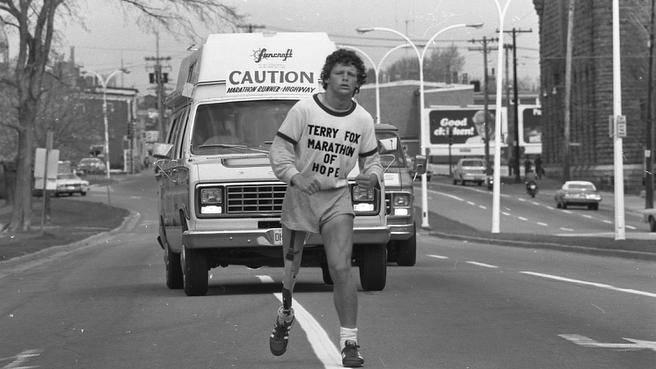If you have spent enough time in Canada, or were born here, you have likely heard the story of Terry Fox, a seemingly ‘unremarkable’ man at first glance. You may have even heard of his Marathon of Hope, where he set out to run coast to coast after losing his leg to cancer at only eighteen. Fox took on this rather ambitious goal in order to raise funds and awareness for cancer, hoping to bring about a change in the world; to render cancer nothing more than a nightmare.
Although he was unable to finish his Marathon of Hope, Terry Fox’s story and dream of a world without cancer resonated not only with Canadians, but with people all around the world. He has had a profound impact on current views regarding cancer awareness and research: he worked to break down the stigma and negative associations people had with cancer, bringing to light the suffering caused by the disease. Through his actions, he gave, and continues to give, people hope that the dream may one day become real.
When the Dream was a Nightmare
How a message is communicated to us, and the language used to tell us something, has a profound impact on how we perceive what is being told to us: particularly when it comes to diseases. Throughout history, the names and symptoms of diseases have been used to stigmatise people, places, and general public perceptions regarding those affected. For a recent example, you do not need to look far to see how COVID-19 has been used to stigmatise and discriminate against certain individuals.
And this is towards a disease that we have only known for three years! Imagine what the stigma would have been like for something like cancer in past decades. The term ‘cancer’ is loaded with negative associations like death, contagion, and unhealthiness. It makes it difficult to enter into conversations about the topic without the associated imagery. Even so, we have these discussions. The same cannot be said for the world known to Terry Fox in the eighties, where it was easier to pretend that cancer just did not exist; something better spoken about in hushed tones, with diagnoses being hidden out of shame.
However, ignoring a problem and choosing to act as if it does not exist often makes the nightmare worse. This waking nightmare is something Terry Fox had first-hand experience with, having witnessed the suffering undergone in cancer wards. Remaining silent would have been easy, yet a better world is not built off of easy choices, and Terry Fox was not the kind of man to stay silent. Though his voice was small, he had one thing in abundance: Determination. The rare type of determination that would see the world move before he did, even if it meant taking it one step at a time.
From a Nightmare to a Dream
Despite how familiar we are with the story today, it would have been easy to overlook Terry Fox’s run when he started it on April 12th, 1980. Surely, a one-legged cancer survivor could not possibly run all the way from the Atlantic to the Pacific coast, right? Imagine the shock of hearing the reports detailing the progress of his run, day after day, as he ran further and further, one step closer to his goal. It probably felt a bit surreal. And maybe something surreal is just what people needed at the time, if they were willing to listen to his message.
Sure, if Terry Fox started a campaign and began speaking about his experience and that of other cancer patients, he could have gained some local support. But, if he wanted people to notice and donate money to cancer research, he needed to give them something bigger. He needed a story. And what a story it proved to be! It was the kind of story that made people sit up and pay attention; moreover, it got them to think and start having discussions.
Discussions about cancer. Discussions related to who is susceptible to it and what can be done to fight against it. Terry Fox encouraged people to challenge their perceptions of cancer. It was something that could happen to anyone, and would not be going away anytime soon. Time, resources, and money would all be needed if a cure was going to be found. Still, just as cancer can happen to anyone, Terry Fox demonstrated that the ability to persevere, hope, and make the world a better place can be found in anyone as well. That the dream of a better world does not have to be a dream if we make it real.
Making the Dream a Reality
Forty years later, Terry Fox’s dream of a world without cancer can still feel like a long-away and distant goal; however, significant progress has been made. This is reflected in the procedures with which we diagnose, prevent, and treat cancer today, enabling more people to recover and reclaim their lives than in the past. Although there is much work left to be done, there are reasons to be optimistic and believe that one day, even if many of us do not live to see it, cancer finally becomes what it ultimately should be: a bad dream.
Some things are worth fighting for and should not be given up on so easily. Despite everything that cancer has, does, and will take from us, it will never be able to take away the things that make us human. Not too bad for an ‘unremarkable’ man. Wouldn’t you agree?


